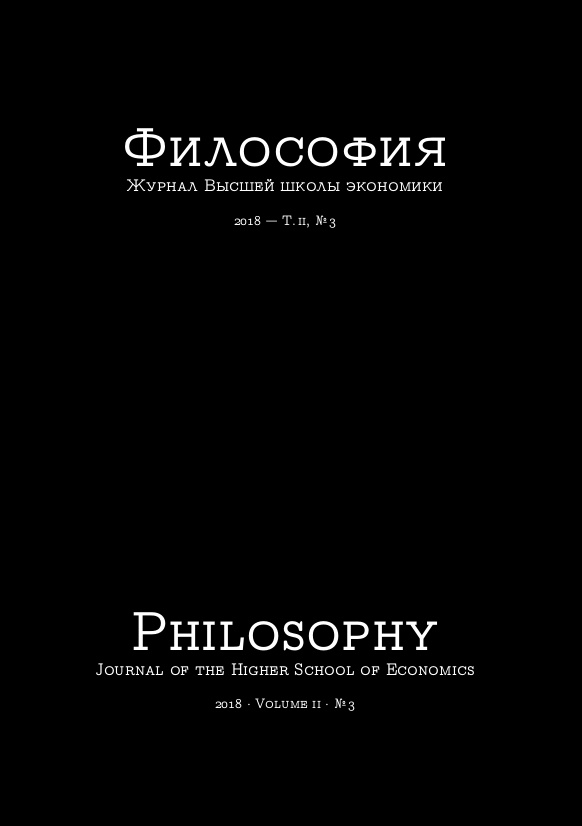Between Vladimir Solovyev and the Nationalism
“Reflections on Nationality” by Sergey Bulgakov in the Context of 1909–1910 National Liberalism Discussion
Abstract
A shift towards a relative rehabilitation of “nationalism” as concept, and attempt to form a national-liberal position occur among the Russian liberal publicists and philosophers after the 1905 Russian revolution. A key part in this process is played by Peter Struve, who since 1906 occupied a rather marginal position in the Cadet Party, ideologically speaking: he was getting increasingly more right-wing than the majority of the party members. However, due to his previous engagement with the liberation movement as well as to his intellectual reputation, Struve was in many ways able to establish the agenda of discussion in the party. It is illustrative that “Milestones” anthology, which was the main event of 1909 in Russia’s intellectual history, was discussed in many respects in the context of nationalism; moreover, at the time a sequel of sorts to this anthology was expected, and it was supposed to be devoted to the topic of nationalism specifically. At the same time Sergey Bulgakov, one of the key contributors to the “Milestones”, addresses the problematics of “nations”, “nationalism” and the related concepts, aspiring to rehabilitate the word “nationalism” from the negative connotations which Vladimir Solovyov’s philosophical tradition has endowed it with, while staying himself within said tradition. While developing his own concept of “nation” within the framework of Solovyov’s writings as strictly restrictive, unlike Solovyov Bulgakov rehabilitates the conception of a particular state as an expression of the corresponding nation. Thus, in contrast with Solovyov's imperial optics, Bulgakov suggests a perspective from which a national state should be considered regulatory. The detailed analysis of “Reflections on Nationality” shows that aspiration to position a national approach within the logic of Solovyov’s philosophy compels Bulgakov to deliver a strict exclusive concept of the national state which could not be overcome by means of Christian universalism, because every nation has its own “national Messianism” attributed to it, as well as its own, specific to it, knowledge of Christ.






